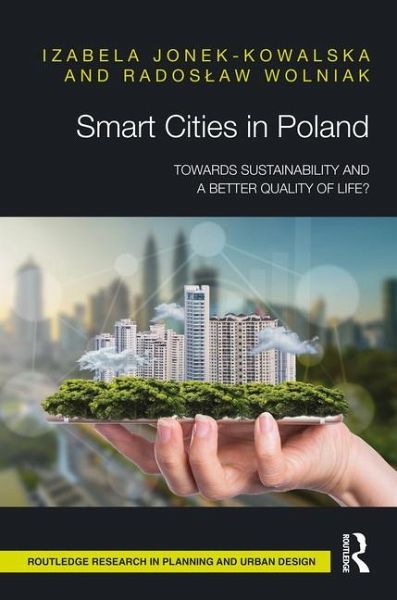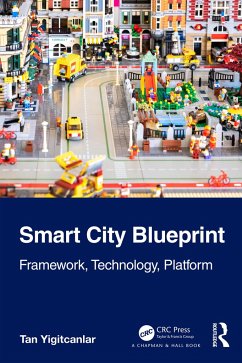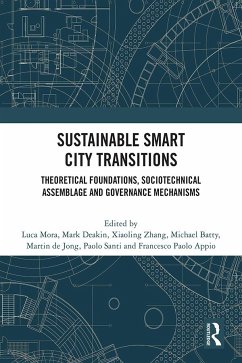
Smart Cities in Poland
Towards sustainability and a better quality of life?
Versandkostenfrei!
Versandfertig in 6-10 Tagen
144,99 €
inkl. MwSt.
Weitere Ausgaben:

PAYBACK Punkte
72 °P sammeln!
This book considers and examines the concept of a Smart City in the context of improving the quality of life and sustainable development in Central and Eastern European cities.The Smart City concept has been gaining popularity in recent years, with supporters considering it to be an effective tool to improve the quality of life of the city's residents. In turn, opponents argue that it is a source of imbalance and claim that it escalates the problems of social and economic exclusion. This book, therefore, assesses the quality of life and its unsustainability in Central and Eastern European citi...
This book considers and examines the concept of a Smart City in the context of improving the quality of life and sustainable development in Central and Eastern European cities.
The Smart City concept has been gaining popularity in recent years, with supporters considering it to be an effective tool to improve the quality of life of the city's residents. In turn, opponents argue that it is a source of imbalance and claim that it escalates the problems of social and economic exclusion. This book, therefore, assesses the quality of life and its unsustainability in Central and Eastern European cities within the context of the Smart City concept and from the perspective of key areas of sustainable development. Using case studies of selected cities in Central and Eastern Europe and representative surveysof Polish cities, this book illustrates the process of creating smart cities and their impact on improving the quality of life of citizens. Specifically, this book investigates the conditions that a Smart City has to meet to become sustainable, how the Smart City concept can support the improvement of the residents' quality of life and how Central and Eastern European countries create smartcity solutions.
Containing both theoretical and practical content, this book will be of relevance to researchers and students interested in smart cities and urban planning, as well as city authorities and city stakeholders who are planning to implement the Smart City concept.
This book is freely available as a downloadable Open Access PDF at http://www.taylorfrancis.com under a Creative Commons Attribution-Non Commercial-No Derivatives (CC-BY-NC-ND) 4.0 license.
The Smart City concept has been gaining popularity in recent years, with supporters considering it to be an effective tool to improve the quality of life of the city's residents. In turn, opponents argue that it is a source of imbalance and claim that it escalates the problems of social and economic exclusion. This book, therefore, assesses the quality of life and its unsustainability in Central and Eastern European cities within the context of the Smart City concept and from the perspective of key areas of sustainable development. Using case studies of selected cities in Central and Eastern Europe and representative surveysof Polish cities, this book illustrates the process of creating smart cities and their impact on improving the quality of life of citizens. Specifically, this book investigates the conditions that a Smart City has to meet to become sustainable, how the Smart City concept can support the improvement of the residents' quality of life and how Central and Eastern European countries create smartcity solutions.
Containing both theoretical and practical content, this book will be of relevance to researchers and students interested in smart cities and urban planning, as well as city authorities and city stakeholders who are planning to implement the Smart City concept.
This book is freely available as a downloadable Open Access PDF at http://www.taylorfrancis.com under a Creative Commons Attribution-Non Commercial-No Derivatives (CC-BY-NC-ND) 4.0 license.













